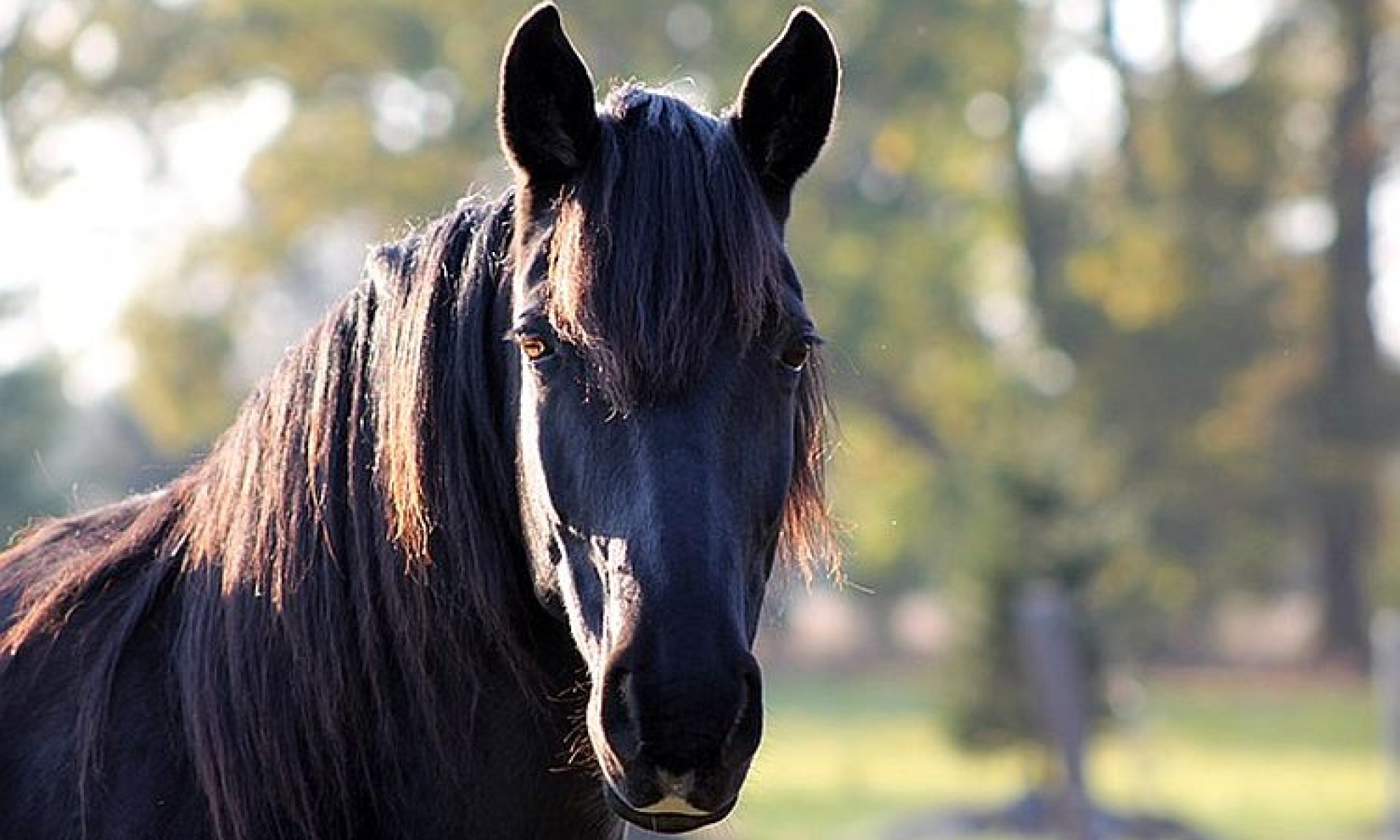Mental Health Professionals use Horses for Therapy
“It was Feb. 27, 1991, during the first Gulf War. His platoon leader stepped on a land mine, injuring the sergeant, killing his best friend and blowing off part of Hamrick’s left leg.
“It don’t ever go away,” said the 44-year-old Palm Bay resident, who sees a therapist once, sometimes twice a week, for post-traumatic stress disorder. “You learn how to cope better. It helps just to be able to vent.”
Recently, instead of sitting in an office and talking about his feelings, he tried something different — a therapy involving a three-legged horse named La Nina , who lost one of her hind legs when it got wrapped in a wire fence several years ago.
“The three-legged horse intrigued me,” Hamrick said. “That’s a pretty heavy animal to try to get around on three legs and develop a gallop. It takes a will to survive. I went through quite a bit myself, complications off and on, being an amputee. You got to decide that you are willing to accept the struggle and keep on going. It’s interesting to see how an animal deals with it.” Read more
Can Horses help with Counselling?
“Instead of meeting for the usual office visits, some mental health professionals and their patients are holding their sessions in barns, pastures, or paddocks. The unconventional settings are the backdrop for a growing clinical approach called equine-assisted therapy, which uses interactions with horses to help patients work through difficulties and feelings they experience in their daily lives.
For example, a horse that a patient tries to bridle could resist, continually throwing its head back. Frustrated after a couple of attempts, the patient’s immediate impulse might be to give up, or blame the horse for being stubborn. But with guidance, patients might also find that successfully dealing with some animals, like some people, just requires the flexibility to take a different tack.
“Often the interaction mirrors how you approach other problems,” says Lisa Baugh, a marriage and family therapist based in Palm Beach County, Florida, who also has trained to do equine-assisted psychotherapy.
Equine-assisted therapy can be used to augment traditional psychotherapy and counselling, or it can serve as a primary intervention, says Denny Cecil-Van Den Huevel, the program director of Professional Counseling at South University — West Palm Beach. ” Read more
I don’t like horses. They’re crazy. I don’t trust nobody. I don’t trust the horses, either.
“In an indoor arena, eight adolescents huddled around several horses at the Rein Dancer Therapeutic Riding Center. One by one, they tried to get a halter on a horse as a social worker and the horse’s owner stood by to help. Each of the youths, all students at the Garfield Park Academy, struggled mightily as the animal tried to shake them off. In the end, not one student managed to get a halter on a horse.
Kathy Krupa, who owns the horses and founded Horsetime Inc., a program to help troubled adolescents by teaching them to work and ride horses, was not disappointed. “You can’t prejudge what success is,” Ms. Krupa said. To you, it might mean getting the halter on. To them, just getting close to the horse might be a success.”
Ms. Krupa and her staff are trained in equine assisted psychotherapy, a relatively new branch of psychotherapy in which individuals interact with horses to help them learn skills in communication, trust and discipline.
After he failed to get the halter on any of three horses in the ring, one of the Garfield students, Taquon, 15, was asked if he thought the process would help him.
“No,” he said. “I don’t like horses. They’re crazy. I don’t trust nobody. I just don’t. I don’t trust the horses, either.” Read on.
The Psychological Benefits of working with Horses
“In a Sussex field, a large bay horse is galloping around, tail held high. This magnificent creature is one of a new army of animals that is helping therapists to treat everything from addiction to autism to post-traumatic stress disorder. Now the psychological benefits of working with horses are being recognised by growing numbers of therapists who work with autistic children, young people with behavioural problems, adults with depression or celebrities with addictions.
“The horse is the perfect mirror, they are very emotional beings; we’re only starting to realise how intelligent they are,” said therapy counsellor Gabrielle Gardner, of Shine For Life, watching the horse dance around his pen at a farm in Blackstone, a village a few miles north of Brighton. “A lot of my clients start off being very nervous, so I wouldn’t always use such a big horse.” Read more.
